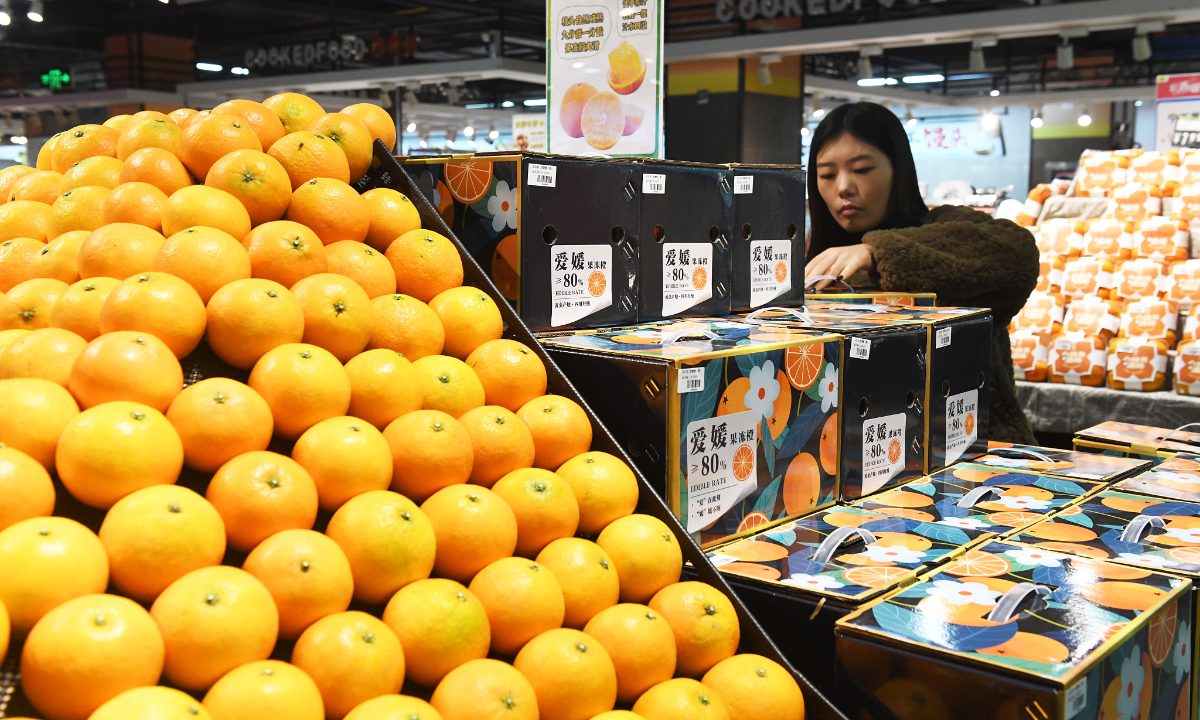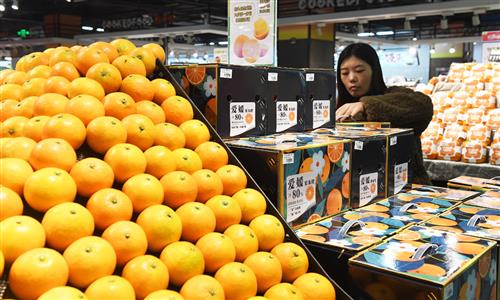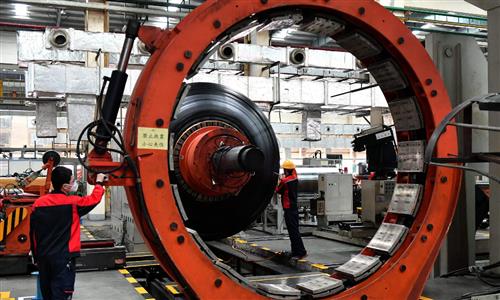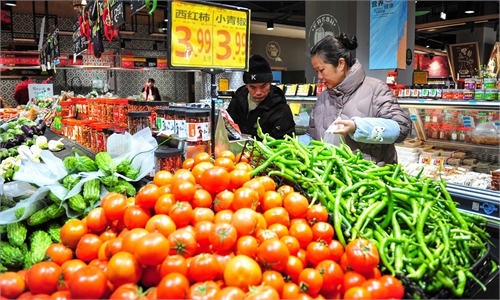China's consumer prices up slightly in March, as economists call for more stimulus measures to ramp up demand

CPI Photo:VCG
China's consumer price index (CPI), the main gauge of inflation, rose by 0.1 percent in March year-on-year, dragged down by seasonal factors as consumer demand dropped after the Spring Festival holidays.
The reading highlighted the need for more stimulus measures to shore up demand, while an expected stronger economic recovery and pickup in energy and raw material prices will lead to a moderate rise of CPI in the coming months, Chinese economists said.
The CPI fell 1 percent month-on-month, according to data from the National Bureau of Statistics (NBS) on Thursday.
Seasonal factors and ample market supply during March dragged on demand, according to Dong Lijuan, a senior statistician with the NBS.
Core CPI edged up 0.6 percent year-on-year, maintaining a moderate upward trend.
Food prices were depressed by the ample supply of vegetables, pork, eggs and fruits while transportation and travel costs fell after the holiday season, contributing to the decline of overall CPI readings, Dong noted.
The March reading ended a sustained month-on-month rise in consumer prices from December to February.
The producer price index (PPI), which measures the costs for goods at the factory gate, fell by 2.8 percent year-on-year in March, slightly widening from a reading of 2.7 percent seen in February, data from the NBS showed.
The depressed readings of the CPI and PPI reflected an imbalance between supply and demand in the domestic market, Zhou Maohua, a macroeconomist at China Everbright Bank, told the Global Times on Thursday.
The CPI is expected to recover as the government's expansionary fiscal policy will stimulate demand, and the prices for energy and raw material stabilize as companies restock their inventories, Zhou said.
The PPI reading indicated a still imbalanced recovery in the industrial sector and highlighted the need for further policy support to bolster social demand, Zhou said.
Despite the depressed CPI figure, a range of recent government data showed that China's economic recovery has been picking up pace.
The official manufacturing purchasing managers' index (PMI), a main gauge of factory activity, stood at 50.8 in March, returning to expansion territory for the first time since September 2023.
Also, exports have improved remarkably so far this year, jumping by 10.3 percent in the first two months. Retail sales expanded 5.5 percent in the first two months.
Sun Chuanwang, a professor at Xiamen University, told the Global Times on Thursday that recovering momentum in the industrial and retail sectors is set to offset the weakness in consumer prices.
The government's trade-in program, which is being promoted across the country, will further tap consumption power through upgrades of household appliances, industrial machines and other items, Sun said.
A strong retail sector indicates that the alleged deflation risk is exaggerated, Sun said.
Deflation is mainly defined as persistent price declines and a downward trend in money supply, and it is usually accompanied by a recession.




